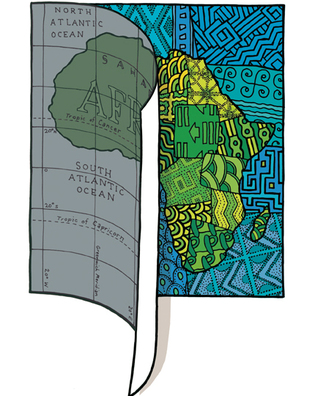 loading
loading
Light & VerityScholars hope for turnaround in African studiesA new emphasis from the president amid faculty departures.  Gregory NemecView full imageWhen President Peter Salovey ’86PhD devoted a piece of his inaugural address last October to the need for “a greater focus on Africa,” ears perked up among students and faculty who have an interest in the continent. Now, many of them are eager to find out what this new attention will mean, hoping for a turnaround from what they see as a neglect of African scholarship. Yale offers an undergraduate major and a master’s degree in African studies through the university’s Council on African Studies. But course offerings are few, a problem exacerbated by the departure of four Africanist faculty members last year. Scott Ross ’14MA acknowledges that those recent departures might be explained as part of the natural ebb and flow, but he also says that “many students who follow Africa feel like there hasn’t been much attention paid to it at Yale.” One recent departure, Mike McGovern, formerly a tenured professor of anthropology and director of graduate studies on the CAS, says his new home, the University of Michigan, “has made a substantial commitment to scholarship on Africa, which is of a completely different order of magnitude than anything that was going on at Yale.” McGovern says the number of courses to which he could direct his advisees at Yale was “extremely low.” Echoing that, a former African studies major, Dayo Olopade ’07, ’15JD/MBA, says, “I really had to construct an à la carte curriculum for myself. The university is not paying attention, and I think that really comes down to hiring. I think it’s a scandal.” Chris Udry ’91PhD, the African studies program’s current chair, doesn’t think the recent departures reflect a trend. He points out that the English department is in the process of searching for a specialist in Anglophone African literature, and that the anthropology and political science departments recently hired faculty with a specialty in Africa. “But it’s certainly true that the program could be richer if we had more faculty who were focused on Africa,” Udry says. “We want to make sure that Yale continues to support departments making offers to scholars doing the most exciting work in their field, and a lot of that will be on Africa.” Political science professor Ian Shapiro directs the MacMillan Center for International and Area Studies, which oversees the Council on African Studies. He says that because of overall budget constraints, there’s no authorization yet for any new faculty hiring initiatives. When the university is able to hire new faculty, he says, “I think we’ll be able to make a strong case that Africa is a priority going forward.” Meanwhile, says Shapiro, Yale is working on what it can do: setting up relationships at African universities and research centers to open possibilities for student and faculty exchanges; and raising funds for workshops, lecture series, and student research. Just after Salovey’s inaugural address, alumnus Bert Cooper ’74 gave the university $1 million to fund Yale scholarships for African students. “This is a multi-year effort,” says Shapiro, “and we’re starting in a year when the university is not flush, but we’re planning for the medium term. I think we have the support of everybody we need in the administration, and if we work hard I think we’re going to do well.”
The comment period has expired.
|
|